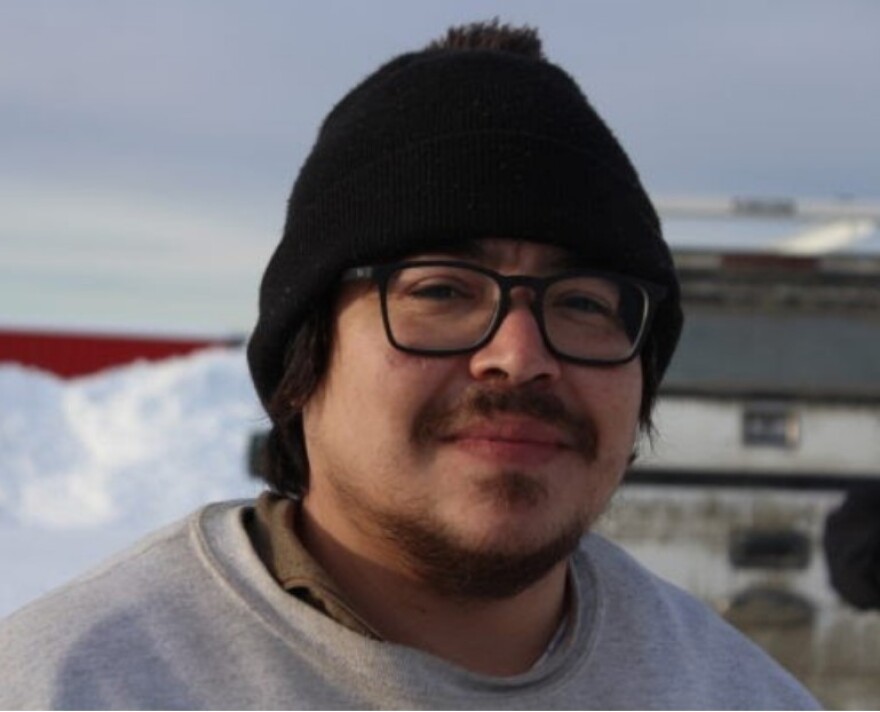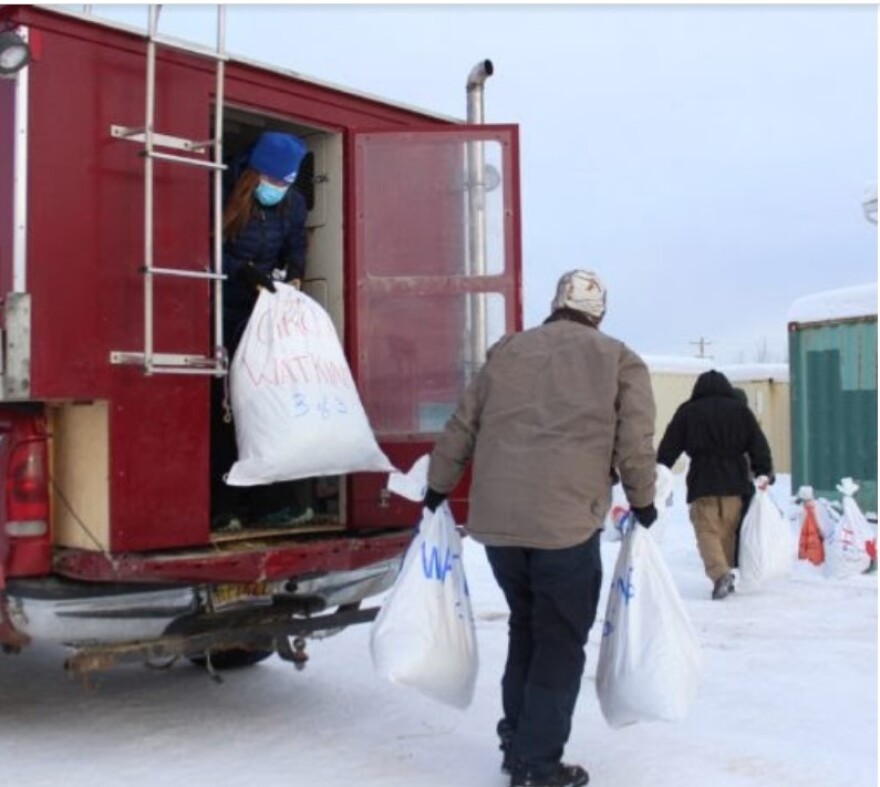There’s no 1,000 mile Yukon Quest race between Fairbanks and Whitehorse this year. That’s of course due to pandemic Alaska-Yukon border crossing restrictions. But race organizers on the Alaska side are putting on the shorter Quest 300, which usually happens outside of the spotlight, but this year, it’s the main event.
Re-branded the Summit Quest 300, the race route runs from Two Rivers over Rosebud and Eagle Summits to Central and Circle, before turning back and finishing in Central. The 300 miler has drawn a field that includes two-time 1,000- mile champion Hugh Neff, a few other veterans, and a lot of rookies looking to gain experience. As Lex Treinen reports, race organizers are making the event happen despite tough financial times and mushers are excited to run it.
Despite the smaller footprint of a shortened Yukon Quest race this year, organizers and mushers are optimistic that they can weather this year’s challenges and resume the 1,000-mile race in 2022.
Doug Grilliot said the decision to hold a shortened, 300-mile race was pragmatic.
“It came down to time and finances,” he said.
It’s not just the length of the race that’s different this year: Things like satellite internet at checkpoints, an official race media crew and a prize purse also won’t happen.
The limited scope of the race has also allowed for some experiments with rule changes. Notably, the race will require 22 hours of cumulative rest recorded at checkpoints. Breaks out on the trail won’t count for the total.
Grilliot said that will give dogs more time to rest.
“If it’s truly, truly unpopular with the mushers, then things can certainly be changed for next year,” he said.
But the rule change combined with the shorter race kept some mushers away, such as 2020 champion Brent Sass.
“Because there’s no 1,000-mile Quest, my training is focused on Iditarod,” he wrote by email. “The Quest this year doesn’t give me the flexibility to run the way I want to.”
Organizers said they didn’t have a choice: They had to avoid seeding small, remote communities with COVID-19.
And there is inherited debt too.
The executive director stepped down last year and the position hasn’t been filled. Grilliot didn’t expand on the hole in the budget, but said he expects the financial situation to improve in the coming months. In the meantime, the Quest is relying on an army of unpaid volunteers.
“Everybody in Fairbanks that sponsored us have really stepped up,” Grilliot said. “I’ve been really, really grateful.”
What the race does have is an exciting line up of young mushers looking forward to years of competitive mushing. The 300-mile race serves as a qualifier for others, such as the 1000-mile Quest and the Iditarod.
Currently, 19 racers are signed up for the competition.
One up-and-coming musher is DJ Starr of Huslia. He got roped into mushing a few years ago, after the Iditarod started in Fairbanks and came through his hometownin 2017. His father-in-law, a relative of mushing legend George Attla, got excited about dog mushing. Starr helped take care of the dogs.

“When he purchased his first dog, it kind of went from there,” Starr said. Now he runs a small kennel with just a dozen dogs, training mostly on flat country on the Koyukuk River. He said he couldn’t be more excited to mush his first 300-miler.
“I could be sitting in the house all day, or working a nine-to-five. Life like that’s a little boring,” he said.
Mostly, he’s just grateful to be racing, thanks to friends and sponsors in Huslia, and some support crew in Fairbanks.
Bridgett Watkins is also racing her first Summit Quest 300 this year — but you can hardly call the 37-year-old a rookie.
Watkins was ready to compete in the 300-mile race nine years ago when she discovered she was pregnant. Now, she has two kids and a full-time job as an ER nurse. But she’s been around dogs since she was a teenager, and knew she wanted to qualify for the 1,000-mile race.
“I’ve watched it my whole life. My family’s raised in it, my dad, of course, and Aliy. It just feels kind of natural to kind of be part of it now.”
Her father, Allen Moore, and stepmom, Aliy Zirkle, are both former Quest champions. Despite her pedigree, and the pedigree of her dogs, Watkins said she’s nervous, like any rookie.
“Unfortunately, when you’ve had so many family members who have done it so many times, they tell you all the horror stories,” Watkins said.

Another rookie with dogs from a strong bloodline is Kai Leddy.
Leddy is racing a litter of two-year-olds bred from Dallas Seavey’s kennel, where she worked after coming to Talkeetna from graduate school in New Mexico. Leddy said even after running a 300-mile race last week, her team came out unscathed.
“Our manager is a vet tech. She looked them over real good, and she was like, ‘Every single dog in your group could go do the Quest 300 this week.’ And that just blew my mind,” Leddy said.
Like many of this year’s Summit Quest mushers, Leddy is hoping that the 300-miler will set her up for the full 1,000-mile race next year.


